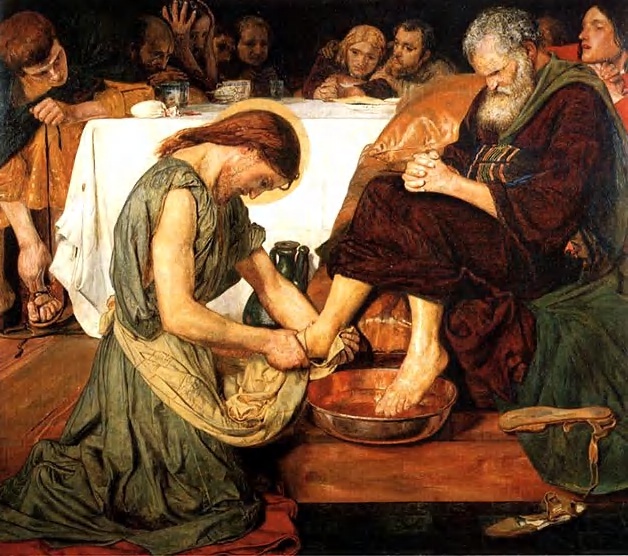Is Loving God Enough?
31st Sunday in Ordinary Time (B)
In this Sunday’s gospel (Mk 12:28b-34), Jesus reminds us that the greatest commandment of all is to “love the Lord your God with all your heart, with all your soul, with all your mind, and with all your strength.” He is quoting from the sixth chapter of Deuteronomy, from a great prayer called the “Shema Yisrael,” from the first two words in Hebrew meaning “Hear, O Israel.” It is an emphatic reminder of the need to love God above all things. But to this first and greatest of commandments, Jesus adds a second: “You shall love your neighbor as yourself.”
Why? Isn’t it enough to love God? Why must we also love our neighbor. God created us. Our neighbor didn’t. God sustains us in our existence and gives us every good thing we need. Our neighbor doesn’t. God can forgive us our sins. Our neighbor can’t. God, not our neighbor, will be our judge on the Last Day. And only God can grant us eternal life. It is right for us to love God above all else. So why isn’t loving God enough? Why must we love our neighbor, as well?
I can think of three reasons.
Loving What God Loves
One reason is that to love God means that we should love his works and love what he loves. If we love God we should love all of God’s creation; this includes especially our fellow men and women whom God made as the pinnacle of creation. We read in the beginning of Genesis that after everything God creates, he looks at it and says, “It is good.” This includes us. So when we look at our neighbors, we should see them as something God sees and God. God loves them. We love God. Therefore we should love our neighbors as God loves them.
Loving God’s Image
As much as God loves his creation and sees it as good, there is only one part of creation that God has made in his very own image and likeness, and that is us. When we look upon our fellow human beings, we are looking at the image of God. If we truly love God, then that alone should give us cause to love our neighbor. Even if other aspects of them may seem “unlovable,” we can at least love in them that innate image of God that exists within us all.
Loving in Practice
The final reason is a bit less straightforward and it is this: love is difficult. Love requires a commitment of the will. It requires sacrifice. It requires self-giving. Love challenges us.
Because God is transcendent, it can be very easy for us to fool ourselves into thinking that we are loving God. We can say a few prayers, go to Mass, read our Bible from time to time, and think our relationship with God is fine. We can have good feelings about God. But love is more than good feelings. Love takes work.
It’s much harder for us to fool ourselves when it comes to loving other people. If we aren’t loving our friends, family and neighbors the way we ought, we see the results — often immediately. We relate to our neighbors in an immediate way, because they are so close to us. We see when they are hungry. We see when they are naked. We see when they are suffering. Their needs are apparent. Our response, or lack thereof, is just as apparent.
God’s Solidarity With the Poor
“Whatsoever you do to the least of these, you did for me,” Jesus tells us in Matthew 25:40. Our Lord teaches that we will be judged at the end of our lives according to how well we loved our neighbors, specifically the poorest of our neighbors. Christ so identifies with the poor that whatever love we show to the poor is counted as love of God.
“Poor” does not mean only those who are monetarily poor, but those who suffer from any kind of lack — whether it be of money, food, clothing, shelter, strength, knowledge, respect or affection. How do we treat those in need? Specifically those close to us?
There is a reason God calls us to love our neighbor and not just “other people” in general. Our neighbor is the one who is close to us. They can be family members, or friends, or literally the person next door. These are the ones God has put into our lives for us to love and to be loved by. Being close to us, we can see them, we can reach them, and we can care for them.
We will be judged according to how well we love those who are near to us. We are commanded to love God above all else, with all our strength, soul, mind and heart. And we are commanded to love our neighbor as ourselves. Ultimately these amount to the same thing. We cannot love God without loving our neighbor because we love God precisely by loving our neighbor.

